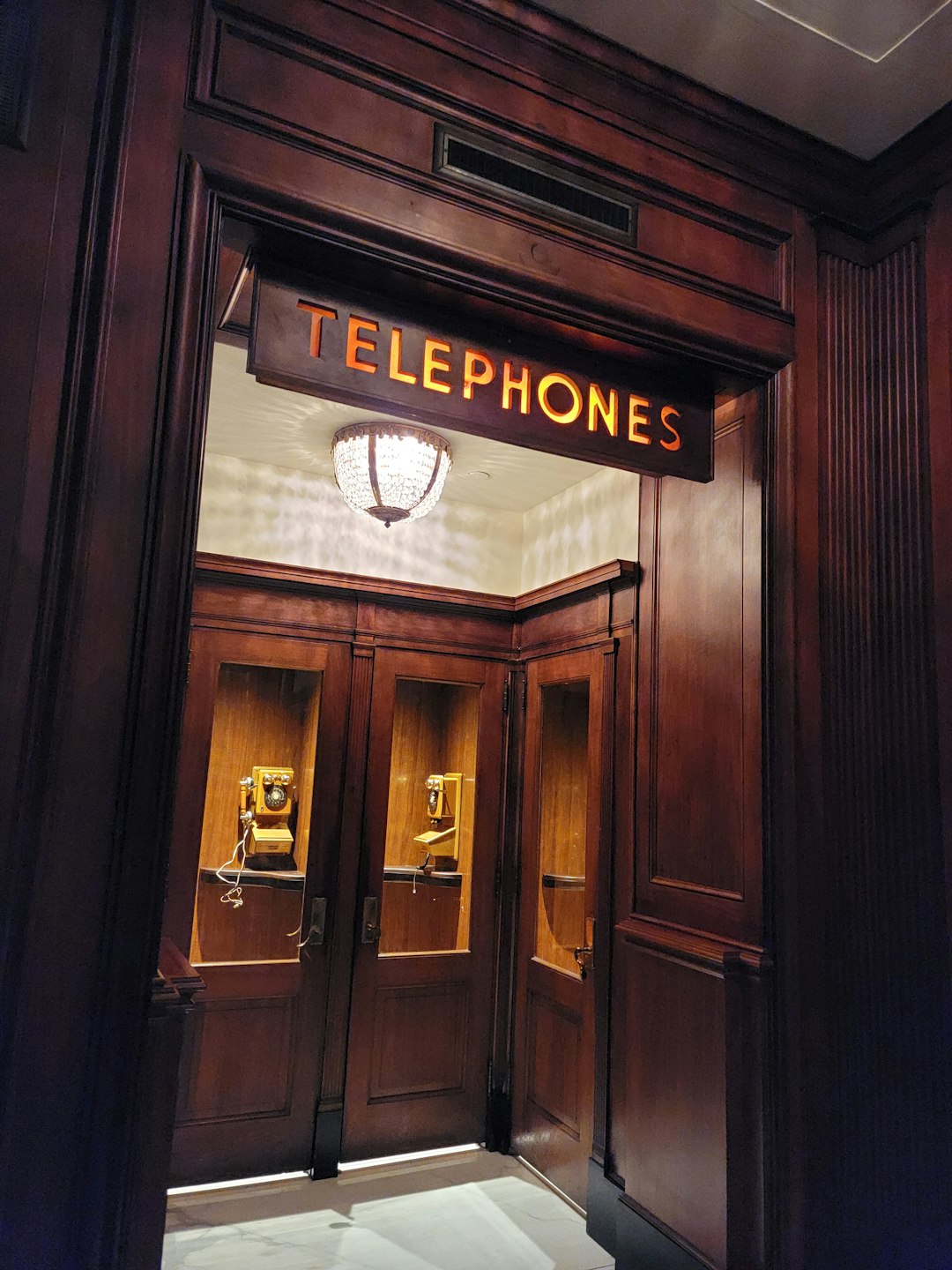In Massachusetts, the Telephone Consumer Protection Act (TCPA) protects residents from unwanted robocalls and texts. If you've received excessive automated communications, specialized lawyers like stop unwanted texts attorneys MA can help. These experts guide clients through complaints, represent their interests, and seek financial redress for TCPA violations. Engaging such legal aid is crucial for successful outcomes, as these professionals navigate complex communication laws to protect consumer rights and secure compensation.
“Tired of relentless robocalls and unwanted texts? You’re not alone. In Massachusetts, there’s a legal framework in place to protect residents from these intrusive and often fraudulent practices. This comprehensive guide explores your rights and the steps to take when facing relentless robocalls.
Learn how to choose the right lawyer or law firm, navigate filing a complaint, and even discover inspiring success stories of real-life cases leading to compensation. If you’re seeking relief from unwanted texts, this is your go-to resource for understanding your options with ‘stop unwanted texts lawyer MA’ and ‘robocall attorneys MA’.”
- Understanding Unwanted Calls and Robocalls in Massachusetts
- Legal Framework for Stopping Unwanted Texts and Robocalls
- Your Rights as a Massachusetts Resident
- How to Choose the Right Lawyer or Law Firm for Robocall Cases
- The Process of Filing a Complaint and Seeking Compensation
- Success Stories: Real-life Cases of Compensation and Relief
Understanding Unwanted Calls and Robocalls in Massachusetts
In Massachusetts, unwanted calls, particularly those from automated systems known as robocalls, have become a pervasive issue. These calls can be frustrating and often invade personal time and space. Robocalls are pre-recorded messages delivered en masse using automatic dialing systems, often with the intention to sell products or services. The Telephone Consumer Protection Act (TCPA) was established to curb excessive telephone solicitations and protect consumers from such unwanted communication.
Massachusetts residents have rights under the TCPA, which prohibits companies from making robocalls unless they have prior express consent from the recipient. If you’ve received unwanted texts or robocalls, a lawyer specializing in this area can help. Stop unwanted texts lawyers in MA or robocall attorneys MA are equipped to guide individuals through legal options, including filing complaints with regulatory bodies and seeking financial compensation for violations of TCPA regulations.
Legal Framework for Stopping Unwanted Texts and Robocalls
In Massachusetts, the legal framework to stop unwanted texts and robocalls is robust and designed to protect residents from intrusive and unauthorized communication. The Telephone Consumer Protection Act (TCPA) serves as a cornerstone, restricting the use of automated dialing systems and prerecorded messages for marketing purposes. This federal law extends to state-level regulations, which in Massachusetts, are enforced by the Attorney General’s Office. If you’ve received unwanted texts or robocalls, you have legal recourse. Engaging a stop unwanted texts lawyer MA or a robocall attorney MA is a crucial step. These specialists can guide you through the process of filing a complaint with relevant authorities and pursuing financial compensation if warranted.
Massachusetts law firms specializing in robocall law are well-equipped to handle such cases, leveraging their expertise and understanding of local regulations. They can represent your interests against offending parties, whether they’re telemarketers or companies using illegal automated systems. By employing a stop unwanted texts attorney MA, you’re taking a significant step towards curtailing nuisance calls and potentially receiving monetary damages for the distress caused by these intrusive communications.
Your Rights as a Massachusetts Resident
As a Massachusetts resident, you have specific rights when it comes to unwanted calls and texts, especially those deemed as robocalls. The state has implemented laws to protect its citizens from these intrusive practices. According to the Massachusetts Telephone Consumer Protection Act (TCPA), businesses are prohibited from making automated or prerecorded calls to consumers without their prior express consent. This includes not only phone calls but also text messages, often referred to as ‘stop unwanted texts’.
If you’ve been experiencing a high volume of these unwanted communications, you may be entitled to compensation. A lawyer specializing in robocall cases can guide you through the legal process and help you understand your rights. With their expertise, they can navigate the complexities of the TCPA and ensure that you receive the financial compensation you deserve for any distress or inconvenience caused by these calls. In Massachusetts, a ‘stop unwanted texts lawyer’ or ‘robocall attorney’ is well-versed in these matters and can provide the necessary legal representation.
How to Choose the Right Lawyer or Law Firm for Robocall Cases
Choosing the right legal representation is a crucial step when tackling unwanted phone calls or text messages, especially in cases involving robocalls and potential financial compensation. In Massachusetts, there are several law firms and attorneys specializing in consumer protection and telecommunications laws who can assist with these matters.
When searching for a lawyer to handle your robocall case, consider looking for those with a proven track record in similar scenarios. You can review their website for client testimonials and success stories related to stop unwanted texts or robocall lawsuits. Ensure they have the necessary expertise and resources to navigate the legal complexities involved. Additionally, check their communication style and whether they offer transparent updates throughout your case. An attorney who actively listens to your concerns and keeps you informed is key to a successful partnership.
The Process of Filing a Complaint and Seeking Compensation
When dealing with persistent unwanted calls or text messages, many Massachusetts residents turn to legal action. The process begins by filing a complaint with the appropriate regulatory authorities, who can trace and identify the source of the robocalls or spam texts. This initial step is crucial in gathering evidence and establishing a case for compensation. Engaging a qualified lawyer specializing in stop unwanted texts and robocall litigation in MA can significantly enhance your chances of success.
These legal experts have the knowledge and resources to navigate the complex regulations surrounding communication laws and privacy rights. They will guide you through the process, ensuring your rights are protected. With their help, you can seek financial compensation for any distress or harm caused by the unwanted calls, as well as punitive damages to deter future violations. Don’t hesitate to reach out to a robocall law firm MA or robocall attorneys MA for assistance in stopping these nuisance calls and reclaiming your peace of mind.
Success Stories: Real-life Cases of Compensation and Relief
In a world where technology has made communication more accessible, it’s not uncommon to find yourself on the receiving end of unwanted and harassing phone calls or texts—so-called robocalls. But what many Massachusetts residents don’t realize is that they may be entitled to financial compensation for these intrusive intrusions. Success stories abound of individuals who have taken action against aggressive marketing tactics, securing substantial relief and setting a precedent for others facing similar situations.
Real-life cases illustrate the power of collective action and legal expertise. For instance, a group of Massachusetts residents, fed up with relentless robocalls, united and hired a dedicated lawyer specializing in stop unwanted texts and robocall regulations. Through strategic litigation, they not only successfully stopped the barrage of unsolicited calls but also received significant monetary compensation for their trouble. These victories serve as inspiration and proof that standing up against violators of consumer rights can lead to tangible results, ensuring a quieter, more peaceful future without unwelcome intrusions.






